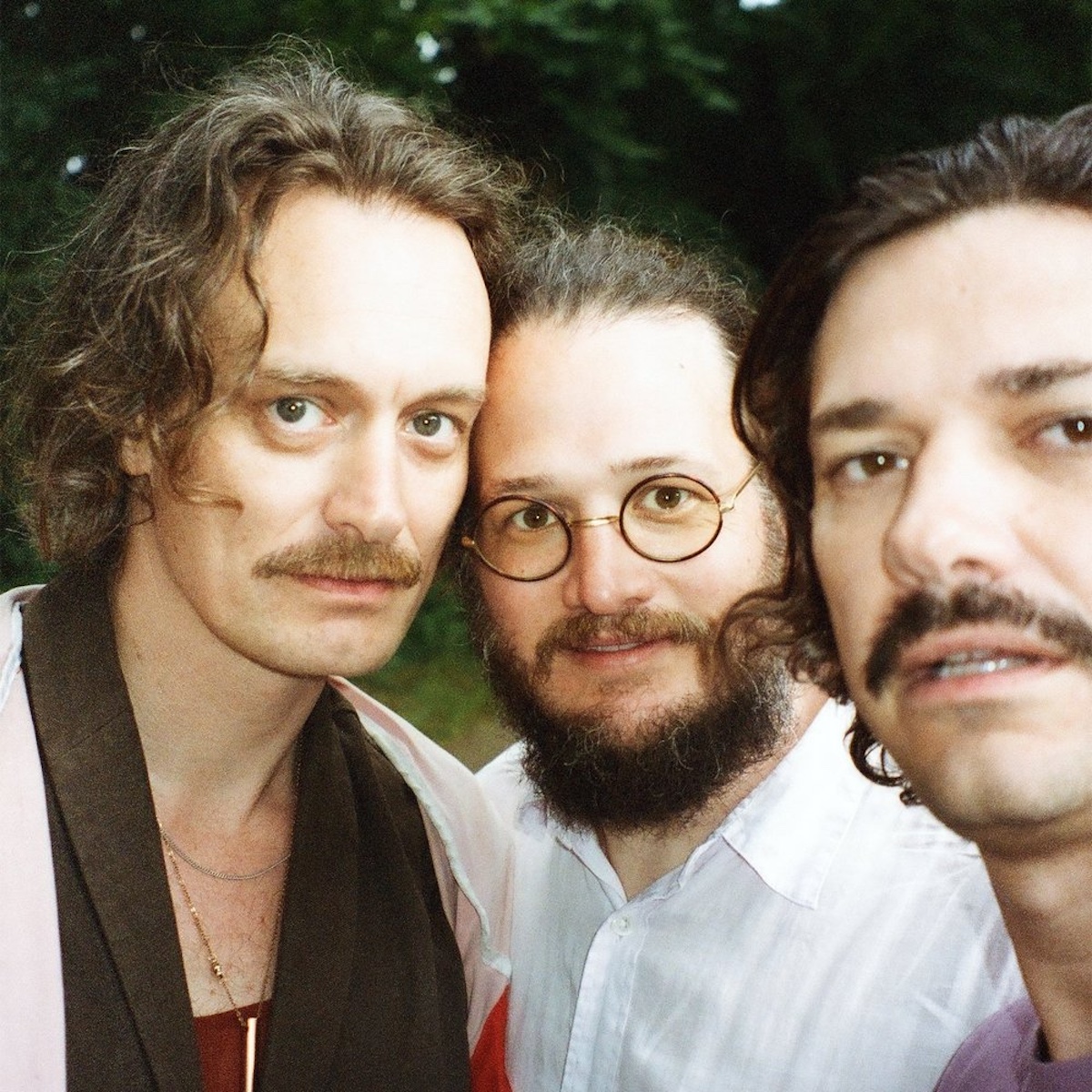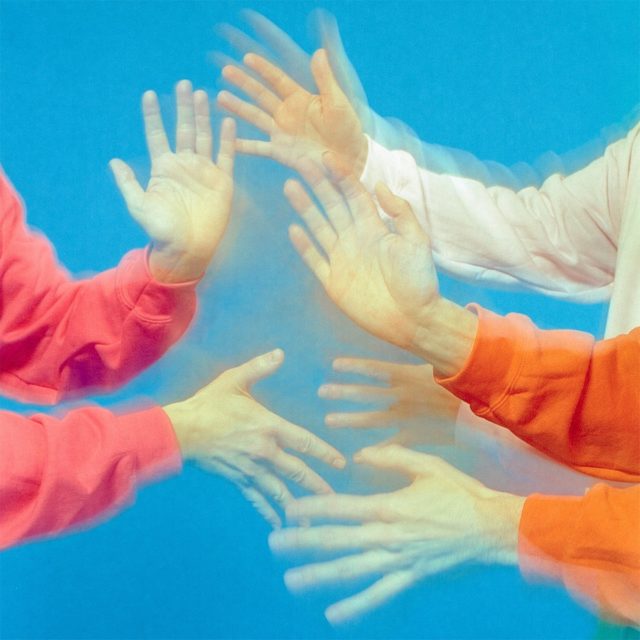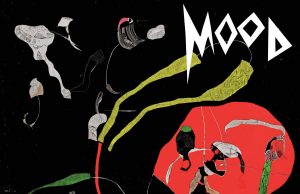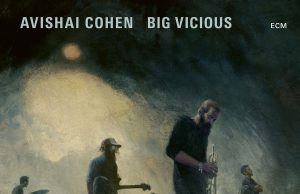THE EDITED PRESS RELEASE: “We all have witnesses to our journey through life. Family, friends, partners, colleagues who have followed us. Many of them do not want us to change. They want us to maintain the familiar position in the community. That’s not the case in Efterklang. The Danish trio have proven to be an open family with room for new ideas, radical shifts, and varying collaborators. A band in flux.
With their seventh album Things We Have In Common, a circle closes. It began with Altid Sammen and continued with Windflowers. For Efterklang, these albums have been an opening towards a simpler, more inclusive expression. It feels like the band have let go. The harmonic tensions are gentler, the tonal language more straightforward. Altid Sammen explored human community. Windflowers explored the relationship between humans and nature. And Things We Have In Common is about collective spirituality and belonging. There is a generosity at play. It’s music open to longing souls and aching beings. With the possibility of both enlightenment and relief. It’s the music of arms reaching out and healing hands. The sound of giving, receiving, and accepting that everything changes.

In the open community Efterklang have become, there are three permanent members: Mads Brauer, Casper Clausen and Rasmus Stolberg. Pianist and composer Rune Mølgaard left after the album Parades in 2007, but he has circled around the band to varying extents since then. On the new album, he has co-composed seven out of the nine songs. There have been sketches from Mølgaard’s hand scattered over the intervening years. A piano figure became the hit Modern Drift on Magic Chairs. It was his groundwork that underpinned Sedna on Piramida as well as Uden ansigt” from Altid Sammen.
However, something else occupied Mølgaard during these years. He had fallen in love with a woman who had grown up in the Mormon Church. In encountering the church, Mølgaard’s spiritual side was awakened with its messages of eternal families, heavenly parents, and discussions about life’s biggest questions. After two years of attending a congregation, he embraced the religion with body and soul. “That it had to be the Mormon Church that caught Rune’s searching nature was a bit of a surprise,” says Clausen. “I had plenty of skepticism, but it was also clear to see that Rune felt called. Like falling in love or writing a song. It cannot be done halfway. In the Mormon Church, you just do it with your whole life, family, finances, and so on. Extremely intrusive.”
Over the years, Mølgaard found it increasingly difficult keeping the faith. “It was a long and difficult struggle to find a balance between maintaining a connection to the community and living in accordance with my authentic self. Alongside the romance, relationships, and community, I also experienced a dogmatic institution. A place where obedience to authority and doctrine ultimately outweighs people’s unique selves. A place that outweighs people’s ability to live with themselves and others lovingly and without reservation.”

For many years, Mølgaard placed all these dissonances on a mental shelf. Eventually, it collapsed under the weight of unanswered questions. In 2022, he withdrew from the church. Efterklang had invited Mølgaard to work on Things We Have In Common before he broke with the church, but after the break, their mutual relationship intensified. “In a way, there is an honesty that has been repaired. It went from something we might have avoided talking about to becoming a focal point,” says Brauer. They were conversations that ended up colouring the current album. “For me, there is a kind of tone throughout Things We Have In Common that resonates and in a way relates to Rune’s recent years. The body that just said stop. The breakdown, the release,” says Clausen. A song title like Shelf Break directly refers to Mølgaard’s crisis of faith. And in the piano’s staccato pattern, you can choose to hear a musical embodiment of his confusion.
Mølgaard has been involved on a much deeper level in the creative process this time around. The band started with his sketches, and they opened his computer instead of Brauer’s. “It was important for me to step back a bit at the beginning to give room for Rune’s ideas and sound universe,” says Brauer. Subsequently, a number of musicians joined the recordings. Finnish drummer Tatu Rönkkö, Venezuelan guitarist Hector Tosta, and Guatemalan cellist and singer Mabe Fratti all became central collaborators. Italian award-winning mixer Francesco Donadello has also left a significant mark, as has the South Denmark Girls’ Choir, who sing on Animated Heart and To A New Day. Donadello and the choir also contributed to the Piramida album.
This year marks 20 years since Efterklang debuted with the album Tripper. The early years were characterized by extreme tunnel vision and a radical lack of compromise. After the release of their second ambitious album Parades in 2007, an intense and creatively open-minded period followed with two more album releases, symphony orchestra collaborations, documentary films, and more than 500 concerts worldwide until The Last Concert in 2014. “These were establishing years where dreams came true. I experienced them as liberating, but also often frightening due to inner and outer expectations,” says Stolberg.The experiments branched out from 2014 to 2018. Efterklang were co-founders of The Lake Radio. They formed the quartet Liima with Tatu Rönkkö. They co-created the opera Leaves, The Colour Of Falling.

The adventurous spirit is still alive. As late as in 2023, Efterklang traveled to North Macedonia to assemble a band of local musicians for a concert in just one week, performed in front of the country’s architecturally wild Monument of Freedom — and immortalized in Andreas Johnsen’s documentary film Efterklang: The Makedonium Band.
The past years have been different. “I experience a maturity in understanding and gravitating more than ever towards what feels important,” says Stolberg. “Towards the end of the album process, we talked about belonging in relation to Rune’s journey, how he no longer found that feeling in the church. We talked about how Casper’s sense of belonging is tied to something nomadic. And about how Mads and I associated this with our families.”
But they all find home in the music, and so does Mølgaard. “When we write and play music together, authenticity is valued as a core value, while also creating space for others,” says Mølgaard. “In Efterklang, it happens from a genuinely curious place, in a shared experience of the moment. It became a completely therapeutic process for me.” It’s about surrendering. “Finding each other and oneself in situations where we don’t belong anywhere or with anyone. And at the same time, being together in that,” as Casper Clausen puts it. From that position, one can give everything to everyone.”








































